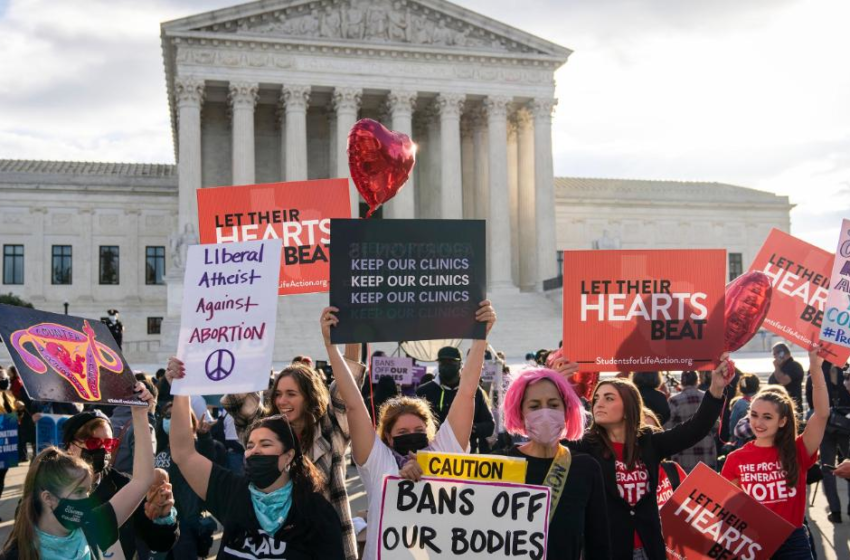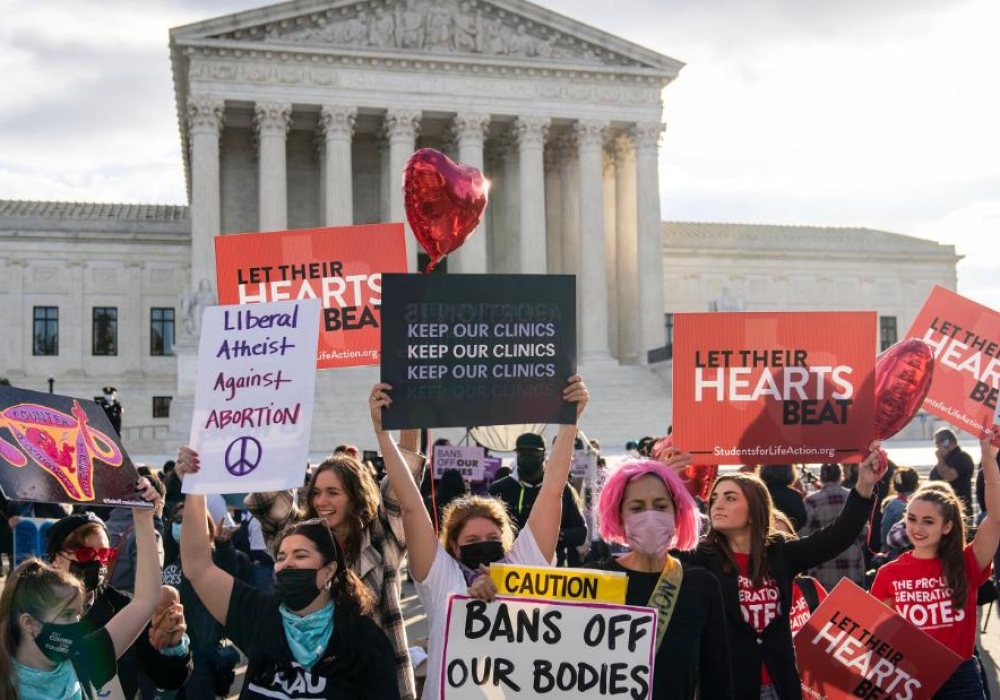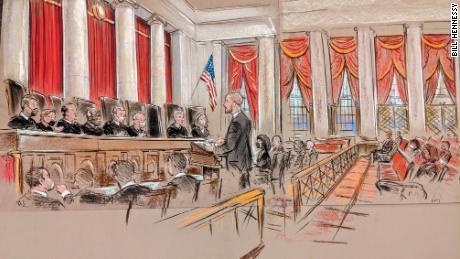Abortion rights advocates warn that current reality in the Lone Star state may soon be the state-of-play in several other states, if the Supreme Court overturns Roe v. Wade in a case from Mississippi that the justices are expected to decide this summer.
Abortion foes cheer the sense they got from the Texas litigation about what the Supreme Court is likely to do in the Mississippi case, which presents a frontal challenge to Roe. In the meantime, Texas has found a way to end access to abortions well before fetal viability, even as court precedent protecting abortion rights up to that point remains for now on the books.
“When it affects this many people, we’re used to getting some kind of relief from the judicial system,” Amy Hagstrom Miller, the president and CEO of the clinic organization Whole Woman’s Health, which operates four clinics in Texas.
She said that it was “shocking” that “we may have to look to other branches of government to restore the human rights for pregnant people in this country.”
“We can’t only go through the district court, circuit court, Supreme Court here anymore,” she said.
A more conservative Supreme Court that is treating abortion differently
When the Supreme Court reviewed Texas’ six-week abortion ban last year, it was not examining whether to reconsider court precedents that protect access to abortion before the fetus is a viable, a point about 23 weeks into the pregnancy.
Still, the justices’ approach provided clues that the court — which shifted significantly to the right after Trump put three very conservative justices on the bench — was going to be treating abortion differently than it had in the past.
Texas is enforcing its six-week ban, known as SB8, by letting private citizens sue in state court abortion clinics or anyone else who facilitates an abortion after fetal cardiac activity is detected, which is around six weeks into the pregnancy. Clinics say that the threat of those lawsuits is having a chilling effect that has spooked them from offering the procedure.
Abortion opponents took it as a major sign of where the Supreme Court was headed in Roe that the justices rejected the request by clinics that it take extraordinary actions to block the Texas law.
“To finally say, ‘We’re not creating new exceptions that are not in the law for abortion,’ was huge,” said Roger Severino a conservative lawyer who served in a top role in the Trump administration’s Department of Health and Human Services.
Regardless of what the justices do in the Dobbs case, the validation of how Texas modeled its ban is going to shape the legislation anti-abortion activists seek to pass in other states.
“This is not an episodic victory. This is really important for the movement,” said Texas Right to Life legislative director John Seago, who said that lawmakers in a half dozen states are considering passing their own versions of SB8. “It shows that it works, that the industry is concerned about lawsuits, private lawsuits, even though they’re difficult to bring. And that’s going to be needed in the future, even if the state has criminal penalties on the procedure on the books.”
“They could care less about the health and safety outcomes of women and families,” said Amy Hagstrom Miller, the president and CEO of the clinic organization Whole Woman’s Health, which brought challenges both to SB8 and the Texas anti-abortion law struck down in 2016.
With the exception of Justice Sonia Sotomayer’s dissent, Miller said of the recent six-week ban ruling, “It wasn’t even brought up that people’s human rights are at stake here.”
“It was just all about the sort of legal back and forth, and the legal strategy,” she said.
How a narrow win was more like a loss
“The same amount of people need access to safe abortion as they did before SB8,” Miller said. “SB8 just blocks highly trained medical professionals like us from being able to provide that care.”
When the Supreme Court issued its opinion last month, abortion seekers in Oklahoma face four-week waits for appointees, while those in Louisiana’s faced waits as long as six weeks, according to providers.
The Texas case has shown how new legal complications can be introduced in the court battles over access.
The Supreme Court left the door open for abortion clinics to continue their lawsuit against a few state licensing officials who in theory could revoke the licenses of physicians for performing the outlawed abortions.
“In many ways, the Supreme Court’s opinion is actually the worst of all worlds for us, because now the Supreme Court has ruled that abortion providers’ medical licenses and nursing licenses and abortion facility licenses are all at stake if … anyone violates SB8,” said Marc Hearron, senior counsel for the Center for Reproductive Rights, which is representing the clinics in the case.
Circuit Judge Kyle Duncan questioned what use the clinics would get out of their lawsuit against the licensing officials, given that the chilling effect of the private enforcement lawsuits would remain. Circuit Judge Edith Jones wondered whether the court should just sit on their case until the Supreme Court decided the Mississippi lawsuit, which concern the state’s 15-week abortion ban.
Jones’ comment was “shocking,” according to University of Texas-Austin health law professor Elizabeth Sepper, particularly given that the Supreme Court had sped up its move to send the case back to the 5th Circuit after its ruling.
“But in some sense, Judge Jones said what everyone is thinking: if Dobbs overrules Roe v. Wade, then the issue of SB8 is just dead in the water, at least in terms of the constitutional right to abortion,” Sepper said.














